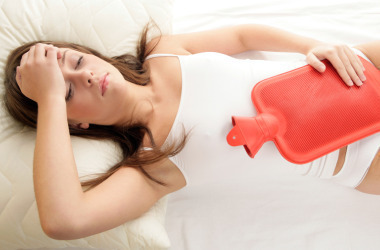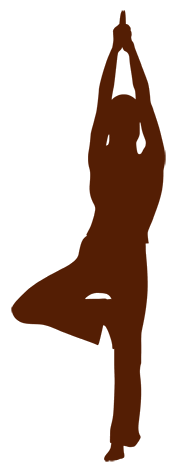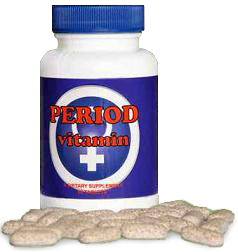Treatments For Post Period Pain
You are probably used to PMS and period pain, but what happens if you have post period pain? Shouldn't the pain stop when the bleeding stops? Well, not necessarily. Many women have pain after their period is over and there are many potential reasons for that.
The Serious Reasons:
First of all, there can be some serious reasons for pain after menstruation ends. Ovarian cysts and polyps are two possibilities. Another is endometriosis, which is a condition where the uterine lining, which is usually shed every month, is not confined to the uterine area. If uterine lining-type cells are growing in other areas, such as your ovaries, cysts and cramping could develop.
Another possibility, as sad as it is to think about, is that you could have some form of cancer. Both uterine and ovarian cancer types could cause pain and other symptoms after your period ends. So, although it's important not to panic, you should see your doctor to rule those scenarios in or out.
The Life Cycle Reasons:
 |
There are also several “life cycle” reasons that you could have post period pain. For example, irregular periods could lead to “false starts” and “false stops” where your body thinks it's time for the bleeding to start or stop, but things just don't go according to schedule. Teenagers and women approaching menopause are all prone to having that sort of problem. Another option is that you could be pregnant, or even have something called an ectopic pregnancy, where the baby is growing outside the uterus. |
It is possible to experience bleeding during pregnancy and an ectopic pregnancy would be especially likely to cause period-like symptoms after the bleeding is done for the month.
If you could potentially be pregnant, you need to consult your doctor. Also, keep in mind that home pregnancy tests are not always accurate, especially if the pregnancy is ectopic. So, you shouldn't take chances with your health or the baby's, if there may be a baby involved.
The Hormonal Reasons:
If you are sure that you aren't pregnant, your periods are always regular and you aren't undergoing menopause, you may simply be having pains after your period for normal hormonal reasons. If your doctor confirms that as being the case, you can probably control your post period symptoms using some natural treatment methods, rather than trying to deal with the harsh side effects that can come with taking medications.
Alter Your Lifestyle:
 First of all, you can alter your lifestyle a bit to relieve post period cramping, bloating and other problems. That would involve not smoking, drinking less alcohol or none at all and cutting back on sugar, caffeine and salt. In fact, cutting back on salt is especially important because salt can cause added fluid retention in your body, creating bloating, back pain and cramps.
First of all, you can alter your lifestyle a bit to relieve post period cramping, bloating and other problems. That would involve not smoking, drinking less alcohol or none at all and cutting back on sugar, caffeine and salt. In fact, cutting back on salt is especially important because salt can cause added fluid retention in your body, creating bloating, back pain and cramps.
Exercising is also important for your health. In fact, studies have shown that exercise can reduce PMS, menstrual symptoms and post period problems. It can also release endorphins, which are natural mood enhancers, into your system.
A better mood and more exercise should lead to sleeping better at night, which can also help your body to heal and repair itself. In fact, all of that can also lead to reduced stress levels. Sometimes, post period symptoms are caused by stress hormones being released into your body. So, the less stress you are under, the better off you will be.
Diet And Supplements for Periods:
You have a lot more control over how your body feels than you might think. Just remember that food and drinks are the fuel that your body needs, but not all fuel is equal. Imagine what would happen, for example, if you put regular gas into a diesel engine. Well, the same issue happens when you put too much junk food into your body. It causes your body to break down and malfunction.
These days, the market is inundated with fast food and processed foods. Unfortunately, that means that it's harder and harder to get all of the vitamins and minerals that you need in your daily diet. However, it's not impossible. Just do your best to eat as many organic and fresh foods as possible and also take a supplement designed to support your body before, during and after your period.
Natural Supplement Ingredients:
There are many great vitamins and minerals found in supplement form. Those vitamins and minerals can bring balance to your body in times of stress. Some of them include calcium, magnesium, vitamin C and niacin.
Each of those vitamins and minerals relieves different types of period-related symptoms. For example, niacin is known for reducing cramping. Calcium, meanwhile, is known for reducing both bloating and headaches. Magnesium can help with all of that because it allows calcium to absorb into your body easier. As for vitamin C, it can control blood flow and regulate your periods, but it can also help to reduce the chances of having pain once your period ends.
Certain herbs are also great supplement ingredients for any period pain-related supplements. For example, white willow bark is known as a natural pain reliever. In fact, it has been used by Native Americans for hundreds of years to fight anything from menstrual symptoms to fevers and colds. Evening primrose, black cohosh and chasteberry are also common herbs to relieve various period and post period symptoms. They can cut back on cramping, bloating, fatigue, back aches and general pains.
The Complete Package:
 |
If you're looking for the complete package of vitamins, minerals and herbs in one supplement, you don't have to look far. One of the best options is Period Vitamin, which contains all of those vitamins, minerals and herbs, as well as about a dozen more beneficial natural components. The best part about natural treatments, such as Period Vitamin, is that they really hit the problem at its source. Sure, commercial pain relief medications can treat the symptoms, but what about the cause? You can create a natural balance in your body and avoid post period pain or needing pain relief medication in the first place, which is what the medical profession would prefer that you forget. |